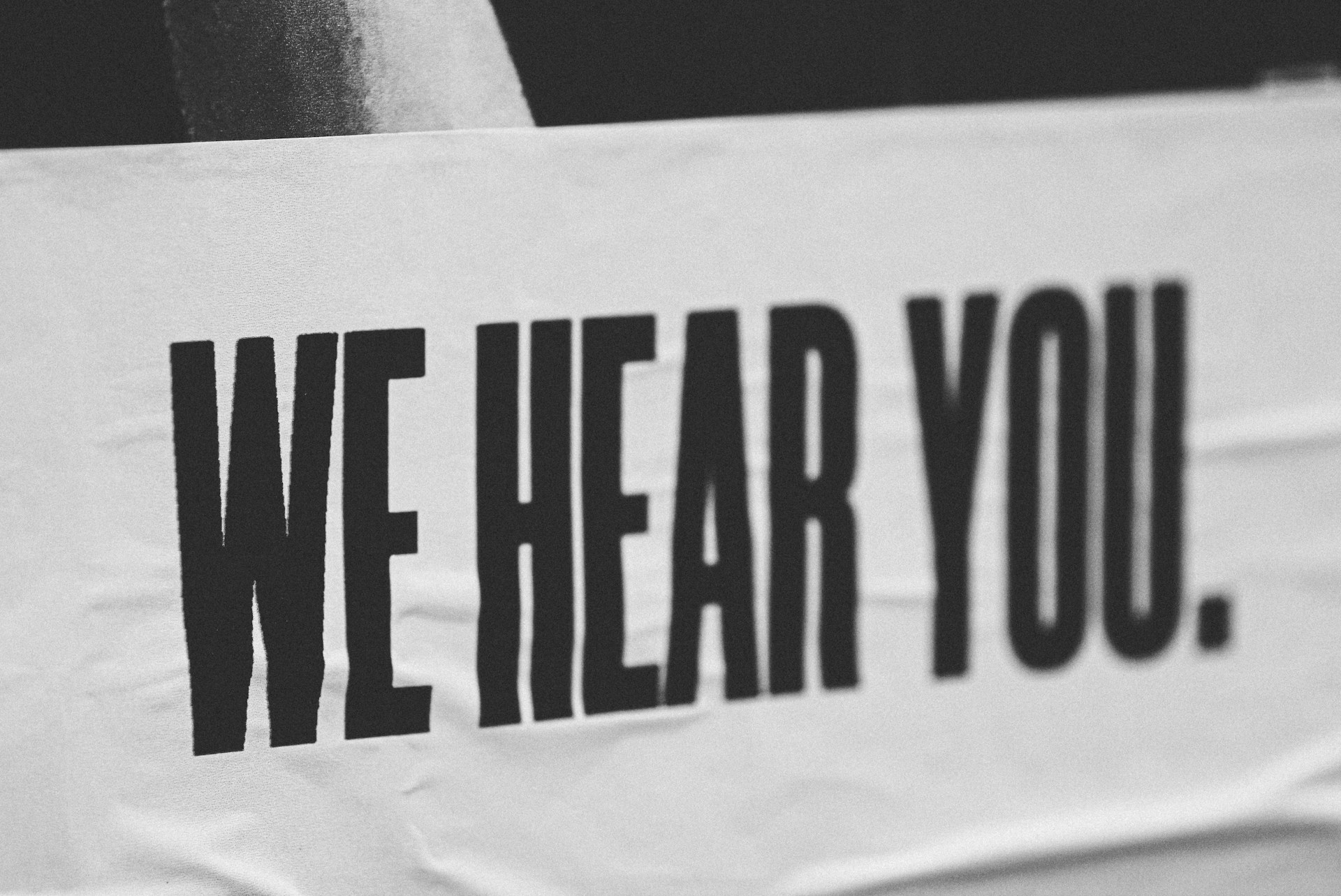Early in my career, empathy was my ace-in-the-hole management technique. I was all business when it came to helping my team on technical, process and performance issues, but if they had an emotional reaction or issue, I reverted to empathy because it was the easy thing to do. I learned that when I was empathetic, people liked me more, and early in my career, I really wanted to be liked. In retrospect, there might have been a correlation between my empathetic management style and the glass ceiling I smacked my head on the first time around, but then again maybe not. One of the folks who got the job I wanted was a woman… though now that I think of it, her management style was anything but empathetic.
Empathy didn’t work on everyone, though. I remember Employee B at a subsequent job. He just pretty much hated me and did everything including lying to my face to try to undermine me – despite the fact that I was the one with the VP title. I was flummoxed and pissed off. I kept trying to empathize in order to connect, and failed time and again. I never did figure out Employee B. I rejoiced when he transferred to another department and to this day I consider him my biggest management failure.
Empathy Off Balance
As I grew into leadership positions, I added more tools to my management toolbox, gained more confidence and relied on empathy less and less. But it was years later that I fully recognized empathy for what it is – an implement with very specific – and limited – uses in the leadership and management toolkit.
I recently had a business coaching client who helped me crystallize this learning. She was facing her equivalent of Employee B – someone who really got under her skin and had a personal beef with her, put her on the defensive and undermined her in public. She was flummoxed, just as I had been. What tool did she take out to try to reach this person? Empathy. “I keep trying to empathize and figure out where she’s coming from,” she told me. But what result did it give her? Frustration and anger – but worse, I could see her falling off balance, just like I had done with Employee B. She was falling off balance – out of her personal power – and losing her most important audience, which was everyone on the team BUT Employee B. Everyone else was watching her teeter off balance and wondering if she could right herself in time for the big deliverable.
So I vowed to help her learn the leadership development lesson I’d failed to learn when Employee B gave me the chance. I had her feel how her empathy for her troublesome Employee B was like an emotional thread connecting them. The more she deployed empathy, the more the other person tugged on that thread, pulling her into their sphere of emotional distortion until she was off balance and out of power.
Women use empathy so naturally that many times we think that being off balance for empathy’s sake is a good thing because being in their sphere means being so in touch with the other person that we’re actually helping them. Maybe this is why we keep turning to empathy even when it’s clearly not working. But when we’re out of our own power and off balance, we’re not helping them. We’re just feeding their illusion and giving away our power.
Find The Limits Of Empathy
As managers and leaders, we are stewards of company resources and goals, and we must do our best to stay clear on the situation as it actually is, unclouded by emotional distortions to the greatest extent possible. To be clear on the situation as it is, we must also be a steward of our own power. But when we’re off balance in empathy, we’re out of power, less adept at staying focused on our business targets and susceptible to the emotional distortions of others. We need to rely less on empathy and more on our judgment in order to respond appropriately, for the good of all involved.
By keeping ourselves in balance, we’re not being “cold” or “heartless,” we’re just being in our own power. This is a good thing! Let’s give ourselves permission to be in our own power first, before we try to help someone in need of our empathy, or strength.
Empathy Good — Compassion Better
I’m not trashing empathy in the workplace. It is an important skill and has its place. It’s also an element of emotional intelligence that’s been purposefully lacking in our leadership cultures for far too long. The emphasis on shareholder value has deemphasized the importance of all kinds of emotional intelligence (EQ), and empathy is an excellent gate to reintroduce EQ back to the workplace. Our collective social traumas associated with the COVID pandemic have made it clear to almost everyone that empathy is key to everything from employee engagement to customer communications.
Empathy’s greatest gift is to ease the other person into understanding that we can appreciate the challenges others are facing, and that we do have insight into their situation, even as we focus on the business. This can open them up to us so we can help them in a management capacity. But there comes a point where you need to stop the empathy once that connection is made. Once they know you’re warm-blooded and caring, don’t keep falling into empathy. Research shows that if we don’t move beyond empathy, we can get stuck in negative thought patterns and are more easily trapped in a thoughts of overwhelm.
The solution is to begin with empathy in order to connect, but to use compassion to manage and lead them. Compassion solves two problems for leaders:
- keeps you from getting stuck in the negative with the other person, which can make you feel helpless to help them
- moves you into a place of action that is more likely to help them (and you!)
How to Be Compassionate
However, be sure to stay out of the trap of trying to solve their problem. Compassion allows you to be present for them and provide information, options and opportunities they might take up to solve their own problem. However, to successfully be compassionate the problem doesn’t need to be solved then and there. The most important gift of compassion is to help the person get out of the negative space that they’re in, and which empathy alone can unintentionally reinforce. If the person you give compassion to feels better at the end–even if they still have a problem–that’s a big win. Take it and come back to a solution at another time.
Here are some simple ways to be compassionate when someone is suffering and you’ve opened the door with some empathy so that they’ll allow you to support them compassionately. They key is to ask questions like these, but do not answer for them, or even try to tell them your opinion until they’ve sorted through it themselves and asked for your opinion (and sometimes even then you don’t need to weigh in):
- What would be most helpful to you right now?
- Is there something I can do–or not do–to help you?
- What options do you have right now? Which one feels right?
- When is a good time for us to come back to discuss this in the future, and can I get it on the schedule so you have time to work through what you need to?
Remember that sometimes the best thing to “do” is nothing. Sometimes, your presence with them in their pain and interest in helping them is all they need. This can be tough work for leaders who like to fix things, but rest assured, you are taking an important step towards helping others find their own fix when you choose to be with them in their pain without sharing it.
When precisely should you dial down the empathy and dial up the compassion? Does it matter whether you’re managing or mentoring the other person? That’s a judgment call in each situation, and I believe it works the same in management and mentoring roles. However, if you imagine your empathy as a magic thread pulling at you towards the other person – and make sure you don’t lean in so far you wobble off center, lose perspective on the situation and lose your balance – you’ll be ok.
The moment they open up to you because you showed them empathy, start looking for the right time to move to compassion. Compassion is so powerful that it’s best to move there as soon as possible. It’s the best way to give someone a path out of a negative emotional state without getting caught up in it yourself.
What’s your experience with empathy? Have you found it’s limits?
Break Free from Emotional Triggers
Free eCourse
When you’re emotionally triggered, your reactions to stressful situations (and people) feel out of control.
All the stress reduction in the world can’t help you if your emotional triggers are in charge.
These 3 lessons will get you back in the driver’s seat.







